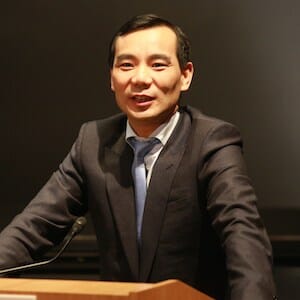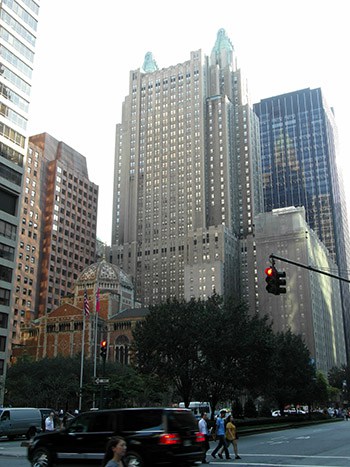
Anbang chairman Wu Xiaohui has put his 11-year-old firm in the spotlight
China’s Anbang Insurance, which burst onto the world stage last year with its $1.95 billion acquisition of New York’s Waldorf Astoria, has set its sights on a new billion dollar deal – this time in Japan.
The Beijing-based insurer is reportedly offering at least $1 billion to acquire Japanese real estate asset manager Simplex Investment Advisors, according to a recent report by Reuters.
Although Anbang faces competition from Blackstone and other investment firms in its bid for Simplex, a successful deal would further drive home the upstart insurer’s determination to become a global player. A successful acquisition would also underline the growing appeal of overseas property markets to China’s outbound investors, as their own real estate industry continues to suffer from the country’s economic slowdown.
Anbang Faces Off with Blackstone
In its bid for Simplex, Anbang is up against a rival offer from US private equity giant Blackstone, which sold the Waldorf Astoria to the insurer through its ownership of the Hilton Hotel chain. Also said to be in the mix are Fortress Investment Group and hedge fund operator Elliot Management from the US, as well as Japanese real estate companies Hulic and Kenedix.
Simplex owns some key property assets in Japan including a hotel near Tokyo Disney Resort, and a 12-storey office tower in Tokyo’s Toyusu district near the site of the 2020 Tokyo Olympics. In addition to providing asset management and real estate brokerage services, the Japanese company also owns Simplex REIT Partners, which manages SIA Reit.
Real estate private equity firm Aetos Capital Real Estate was first reported to put Simplex on the market in March of this year, when it hired Mitsubishi UFJ Morgan Stanley as a sale adviser.
11-Year-Old Insurer Determined to be a Global Player

Anbang bought the Waldorf Astoria last year for $1.95 billion
Should Anbang be successful in its Simplex bid, it would be the third major overseas real estate acquisition for the company in the last year, in addition to a number of deals in the finance sector.
After agreeing to buy the Waldorf Astoria in October 2014, the company, which reportedly has assets of over RMB 800 billion ($126 billion) went on to acquire an office building on New York’s Fifth avenue for $415 million.
Also in the last year, Anbang has been busy in Europe, buying the banking division of the Netherlands’ Delta Lloyd group, plus insurers Fidea Assurance and Vivatal. In February, the company, which is controlled by the husband of former paramount leader Deng Xiaoping’s grand-daughter also acquired a controlling stake in a South Korean insurer for $1 billion.
This flurry of deals comes despite Anbang being a second-tier player in China’s insurance market. The company is estimated to hold just 3.6 percent of China’s domestic insurance market, far behind industry leaders China Life, which is estimated to hold 25 percent, or Ping An Insurance, which controls about 14 percent of the market.
That small share of the market hasn’t dissuaded Anbang from shooting for a big place on the world stage, however. Besides its existing acquisitions this year, the 11-year old insurer also is reportedly close to acquiring an office building in London for £750 million ($1.16 billion).
Uncertainty at Home Driving Chinese Outbound Deals
While Anbang’s surge of deals has come suddenly, there may be sound investment rationales behind it.
Just today China’s central bank allowed the country’s currency to devalue by 1.9 percent, the biggest downgrade in the yuan’s value in two decades. Many experts expect the yuan to devalue further during this year, giving investors even more reason to look for overseas assets to hedge their investments.
China’s insurers have only been freed up to move capital overseas by changes in government policy over the last three years that raised the ceiling on overseas investments by Chinese funds to 15 percent of their assets.
According to figures gathered by Mingtiandi, outbound Chinese investment in real estate has now exceeded $13.4 billion this year, coming close to 2014’s full year total of $14.3 billion. Out of this total, the country’s insurers have accounted for more than $1.4 billion in transactions.
Leave a Reply